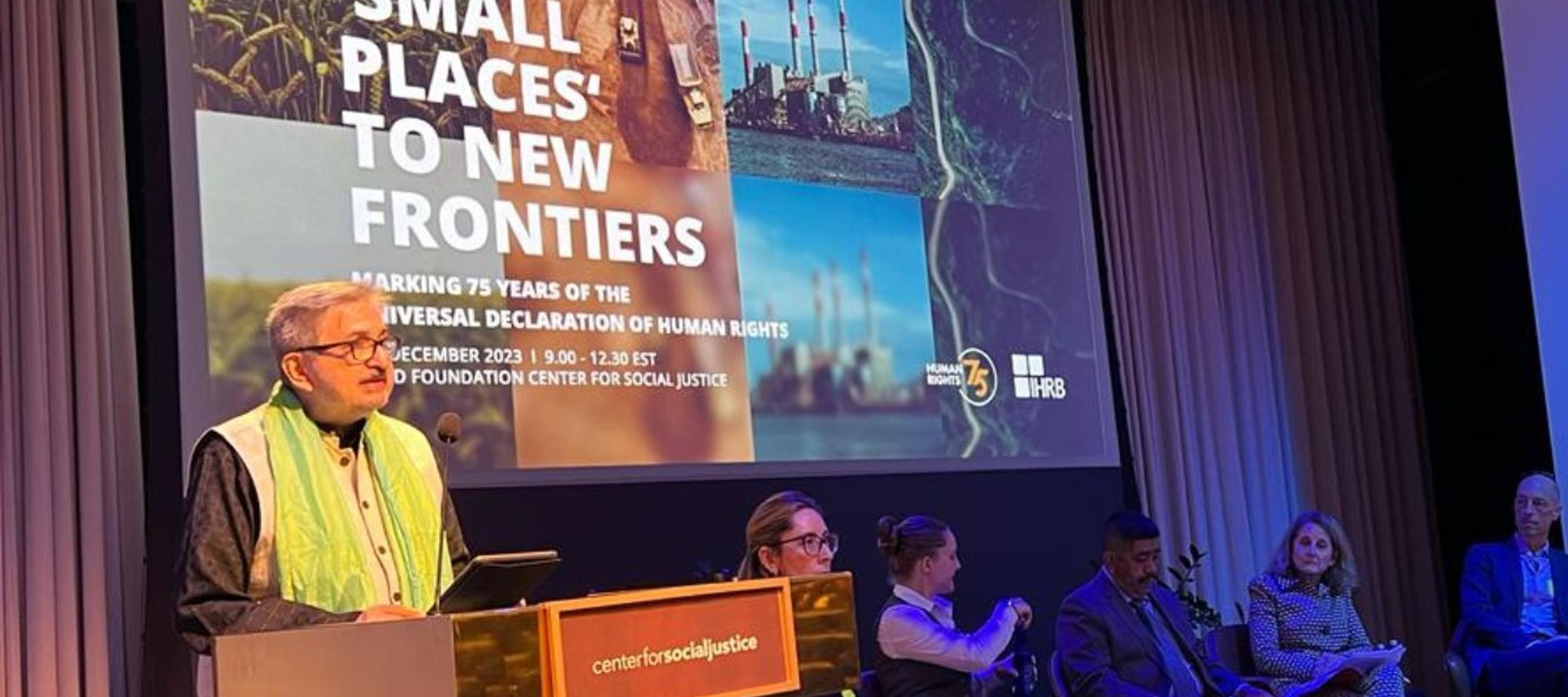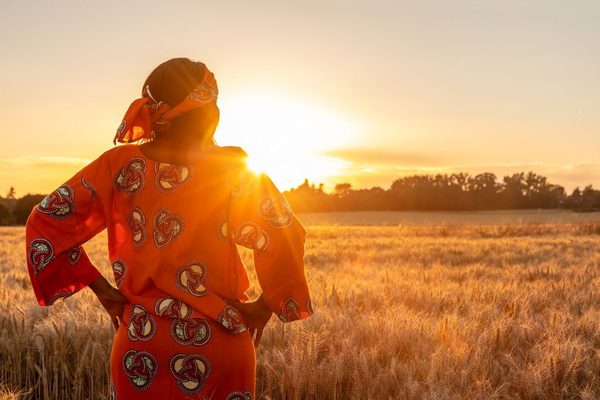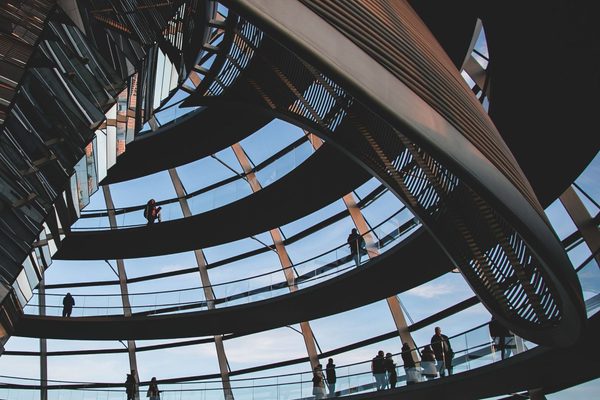Salil Tripathi on why the Universal Declaration of Human Rights still matters, 75 years later
12 December 2023

Salil Tripathi delivers opening remarks at IHRB's event: From 'Small Places' to New Frontiers – Marking 75 Years Since the Universal Declaration of Human Rights, at the Ford Foundation Center for Social Justice in New York, on December 11 2023.
“Where, after all do human rights begin? In small places, close to home—so close and so small that they cannot be seen on any maps of the world.” Eleanor Roosevelt, who said this in a speech marking the tenth anniversary of the Universal Declaration of Human Rights named among those places the factory, the farm, and the office. She was reaffirming the intent of the UDHR – that it was not merely a contract between the state and the citizen, but applied to and affected everyone, all the time, anywhere.
The Declaration was drafted in the wake of the cataclysmic World War II. Picture the allied soldiers, walking through the ruins of Europe, and discovering the ultimate horror of the Holocaust, liberating sick and emaciated survivors in concentration camps. The mass atrocities of that war led to the creation of new institutions in the hope that a new world will be built. At Dumbarton Oaks, the plan of the United Nations came into being. At Bretton Woods, a new monetary system for financial stability and using finance for development, were being conceived. Hersch Lauterpacht and Raphael Lemkin helped us understand the magnitude of what had happened and gave us the terms – genocide and crimes against humanity. Never again, the world resolved.
The distinguished Norwegian diplomat Jan Eliasson would put it rather well later: “There can be no peace without development, no development without peace, and no lasting peace or sustainable development without respect for human rights and the rule of law.”
Together with the Chinese philosopher Peng-Chun Chang, the French Nobel Laureate Rene Cassin, Lebanese philosopher Charles Malik, Indian educationist Hansa Mehta, and other experts, worked with Roosevelt, and this group of women and men crafted a declaration that has stood the test of time. It brings together civil, political, economic, social, and cultural rights, showing how interconnected, interwoven, complimentary, universal, and inalienable those rights are. True, the politics of the Cold War created divisions between those focused on civil and political rights, and others on economic, social, and cultural rights. True again, governments did as they wished, placing some rights over others. And as the years passed, some criticized the Declaration as outdated, or imposing western norms and values, or placing rights over duties to community. We should be cautious of speaking of ‘western norms.’ As Frank Mugisha, the Ugandan LGBTQI rights activist puts it: “homosexuality was always part of Africa; homophobia is a western import.”
Many governments calling for human rights often neglect their own obligations to respect, protect, promote or fulfill human rights, using power imbalance or cultural relativism as an excuse. While aspects of various faiths and philosophies do align with human rights, some traditions and schools of thoughts perpetuate discrimination against those who worship differently or not at all; against women, different ethnicities, or those of different sexual orientations, class, caste, abilities, and so on.
Where do we trace the origin of the rights? To Magna Carta, a document signed by propertied elite to prevent a king from imposing taxes to fight wars, restraining his right but empowering only those men? To the philosophy of the Aristotle and Plato? To the Analects of Confucius, who placed group harmony over individual rights? To the code of Hammurabi, enunciating the earliest principles of justice? Or the edicts of Ashoka in ancient India, which lay the basis of humanitarian law, and on the pillars around the monuments he built we saw the earliest reference to human and animal rights?
These ancient codes were not necessarily all-inclusive and perfect. But each contributed towards designing the architecture of human rights, and each did so by stressing equality, by enabling the powerless to hold the powerful accountable, and by respecting dignity, to recreate the world as it was meant to be, where each of us is equal, regardless of whatever makes us appear different.
And to that, Emmanuel Kant with his categorical imperative, Thomas Paine’s The Rights of Man, John Rawls and his veil of ignorance, and Amartya Sen, speaking of capabilities approach and of development as freedom, helping us unpack the meaning of niti, or the rules and regulations, and nyaya, or how we realise them.
The Universal Declaration’s beauty is how it weaves together the nobler elements of all traditions and creates a document that treats everyone equally as a universal, common standard of humanity. It lets us interpret modern challenges and dilemmas. Electronic surveillance? The UDHR refers to privacy and arbitrary detention. Forced labour or servitude? There are strictures against that. Protecting health or environment? The UDHR anticipates that too. And it does so in ways that allow rights-enabling leadership and all of us to apply the principles to our time.
The language of human rights has inspired countless leaders. At the conclusion of his Rivonia Trial in 1964, before he was taken away for 27 years in prison at Robben Island, Nelson Mandela said: “I have cherished the ideal of a democratic and free society in which all persons live together in harmony and with equal opportunities. It is an ideal for which I hope to live for and to see realised. But my lord, if it needs be, it is an ideal for which I am prepared to die.” That determination comes from a desire to fight injustice, something we must. Here’s Elie Wiesel: “There may be times when we are powerless to prevent injustice, but there must never be a time when we fail to protest.” And the brave Honduran, Berta Cecares: “They are afraid of us because we are not afraid of them.” And over in Iran, Narges Mohammadi, this year’s Nobel Laureate, has said: “Women will not give up. We are fuelled by a will to survive, whether we are inside prison or outside.”
Long before William Wilberforce in England and Abraham Lincoln in the US removed the shackles of slavery, in 1511, the Dominican Friar Bartolme de la Casas was imploring the conquistadors: “Tell me by what right of justice do you hold these Indians in such a cruel and horrible servitude? On what authority have you waged such detestable wars against these people who dealt quietly and peacefully on their own lands?”
If those words indicate why civil and political rights are crucial, here’s Mohandas Gandhi, speaking of how those of us with power must use it to remove miseries of those who lack access to basic necessities. Weeks before he was assassinated, he said: “I will give you a talisman. Whenever you are in doubt, or when the self becomes too much with you, apply the following test. Recall the face of the poorest and the weakest man or woman whom you may have seen, and ask yourself, if the step you contemplate is going to be of any use to him or her. Will he or she gain anything by it? Will it restore him or her to a control over his or her own life and destiny?.... Then you will find your doubts and your self melts away.”
*
Factory, farm, and office. It is instructive that when Eleanor Roosevelt spoke of rights, she spoke of places where we work: private spaces, run by businesses. The UDHR itself, in affirming that ‘every individual and every organ of society,’ had responsibilities to promote its objectives, was pointing to the reality that the world of business had a role to play as well . But business meant money and capital, and power; business sought profit, and in its pursuit of profit and efficiency, it would inevitably cut corners, seek fewer regulations, sometimes manipulate markets, and exploit workers. Businesses went around the world to trade and ended up colonizing vast territories. In West Africa, as it sought to produce energy, it left a devastated landscape and destroyed environment. In reducing cost of production of a vast range of products, from garments to consumer electronics, it sought out workers in Asia and beyond, driving down standards, wages, and undermining trade unions. Its poor regard for safety standards gave us disastrous outcomes in places like Bhopal in India and Dhaka in Bangladesh. More recently, companies have contributed to or benefited from armed groups or law enforcement authorities, raising the risk of being complicit in conflicts in Syria, Sudan and elsewhere.
And yet, there has also been exemplary conduct by businesses or business executives. In Nigeria, during a period of bitter ethnic conflict, one oil company made its helicopters available to fly local people to safe zones. During World War II, Oskar Schindler saved the lives of countless Jews, employing them in his factories, to prevent them from being sent to death. In Rwanda, Paul Rusesabigana opened the doors of his hotel to provide refuge to Tutsis during the genocide. In 2019, Carola Rackete, the German scientist and ship captain defied the Italian government and brought refugees stranded at sea to safety at the island of Lampedusa, as Arne Rinnan did, saving more than 400 Afghan refugees in 2001, defying an adamant Australian government. Companies operating in Ireland during the Troubles signed the MacBride Principles to prevent sectarian strife from infecting the workforce. And during apartheid-era South Africa, many companies signed the Sullivan Principles to ensure equal pay for equal work and equal opportunities for all employees, regardless of colour. In more recent years, companies have come together in multistakeholder initiatives to act in ways that respect human rights – in how their facilities are guarded, where they buy minerals from, how they share revenue with governments, as well as speaking out in public, defending the Black Lives Matter movement, and speaking out for LGBTQI rights in the United States and in other parts of the world.
We face immense humanitarian crises. The climate crisis demands a collective shift from our carbon-intensive, heat-generating environment to a cleaner, rights-respecting future based on just transitions. Automation threatens to social stability as jobs become obsolete. Artificial Intelligence offers a more fun, less tedious future which poses existential challenges. Rising xenophobia produces politicians offering simplistic solutions. Over sixty elections, including in countries as influential as the US, Russia, India, South Africa, and Indonesia, loom. And amidst 60 global conflicts, Russia’s invasion of Ukraine, the terrible attacks on Israel in October and Israel’s devastating response in Gaza, challenge our world order.
With such realities, it is fair to ask: do the words of the UDHR still matter? Do they continue to resonate in such a bleak scenario? Can business play a constructive role in helping to strengthen and renew the international architecture intended to protect the rights we all believe belong to all people? We must believe in a better tomorrow.
I turn to Gandhi again: “When I despair,” he said, “I remember that all through history the way of truth and love have always won. There have been tyrants and murderers, and for a time, they can seem invincible, but in the end, they always fail. Think of it—always.”
This is not naïve optimism on my part, or a desire for a fairy-tale ending. To conclude, I leave us all with the words of Vaclav Havel. “Hope is definitely not the same thing as optimism. It is not the conviction that something will turn out well, but the certainty that something makes sense, regardless of how it turns out.”
Those words should guide us, from tomorrow and beyond.
IHBR's 2024 Top 10 Business and Human Rights Issues looks at the 'small places' and new frontiers where responsible business will be critical, in time of conflict, climate crisis, rapidly evolving technologies, and persistent inequalities. Read it here




